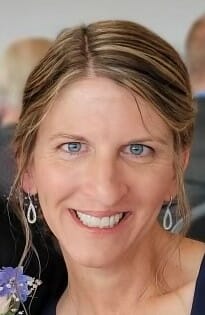

Several weeks ago, I began volunteering as a care assistant at a nursing home that is part of the system my husband works for. It has been a rewarding, eye-opening, and somewhat concerning experience that I can’t stop thinking about.
My thoughts lately keep going to the countless caregivers who begin their work in the dark hours of the morning, frequently having had worked a double shift the previous day. While their on-duty time seems to come with little respite, I have the luxury of filling in where needed only a couple times per week. Even as I sit here putting these thoughts down on paper, I recognize and feel a bit guilty for the luxury of having the time to sit quietly and think.
I chose to do this because I feel compelled to lend a hand to my fellow caregivers; I’ve been a physical therapist for nearly 30 years. I took a course and became certified to pass meds in order to provide some relief to overworked staff. I fill in where staff shortages leave gaps and create stress and constant worry for administrators. What was revealed on my first day was the sheer enormity and importance of this role in our nation’s nursing homes and assisted living facilities.
The job
Many of us know the general duties of being a Personal Care Assistant (PCA), but how many of us have recently worked in this role? Meds need to be passed within a small window of time, with varying instructions like, “30 minutes before eating,” “with food,” “for PRN pain” with a documented response after the med is passed.
Sometimes the medication is located in the refrigerator outside the locked unit. And of course, along with the job of passing meds, is assisting residents with their personal cares, getting them dressed, toileted and ready for the day. Some residents with dementia can be hesitant, resistant and even combative during this morning “invasion.” Some refuse to be assisted with toileting and require the PCA to step out and reenter with a new approach each time, trying various tactics to coax them into doing the most basic things.
After the residents are attended to for care, breakfast requires additional setup and guidance. Residents may need complete assistance from the PCA to eat their meals. The PCAs I helped would bring in items like adult coloring books, magazines or newspapers for the residents. Even though it cost them money, it keeps their charges’ interest piqued and provides a sense of well-being. Oftentimes, there are one or two residents who refuse to get up in the morning. This then requires continual monitoring, while everyone else is either eating or doing social activities.
What this all adds up to is the caregivers in our loved ones’ short-staffed nursing homes seldom get a break or time to eat a quick lunch. And frequently, the PCAs work double shifts, which makes this an absolutely exhausting job.
Why do I go into all this detail of the duties and stressors that accompany this important job in our society? It’s because I want to join the countless others who are sounding the alarm about a potentially troubling future in long-term care.
We are facing a critical shortage of healthcare workers, specifically nursing staff. Fewer young adults are becoming Certified Nurse Assistants (CNAs) or going into associate or nursing undergraduate programs. Things are hard for caregivers right now. They will only get worse as more and more people choose other professions.
There is a stigma in our society and even in our professional groups around being “just a CNA.” The work is difficult, intimate and sometimes just plain gross. The role is undervalued and underpaid. Nursing home reimbursements and other revenue streams are not good. Therefore, wages cannot compete with other service industries. But without these dedicated caregivers, our country’s elder care system would all but grind to a halt.
Nursing homes (and all healthcare facilities for that matter) continue to be vigilant against COVID-19 and other viruses. The constant masking, gloving and gowning up for infection control measures to reduce or prevent transmission continues to be part of this job, and many are fatigued by it.
On my shifts, I often meet and talk to other nursing home staff. One faithful employee works in housekeeping four days per week and then picks up weekend shifts as a PCA. She also learned that the kitchen was short-staffed, and since she only lives a few blocks away, has decided to come in almost daily outside her work time to assist there, too.
I’ve also found out that our administrators, like the director and our CNO who worked every day for three months without a day off, are regularly taking on PCA and CNA roles to ensure safety and continuity of care. These are indeed unprecedented times.
What can we do?
We need to reexamine our biases toward lesser-degreed healthcare professionals like CNAs, housekeeping and dietary staff. We need to stop saying, “I could never do a job like that,” and instead show them the appreciation and compensation they deserve.
At the nursing homes within our system, people in leadership are taking med pass courses like me, and are working as PCAs to fill in where there are shortages. This sends a message to all staff that everyone has a role to play and removes the air of superiority or lack of understanding about the importance of this role.
And closer to home, personally, it is important to teach our children and grandchildren to respect those in service professions like nursing, housekeeping, transportation and food service. Perhaps this starts with our children learning to clean up after themselves, especially doing “dirty jobs” around the house like bathrooms and keeping a clean room. They need to know just not how to clean, but to not be afraid of getting dirty. We should also encourage them to take babysitting jobs so that they understand how to care for less-abled people from a young age. These are the early skills and habits that will them be better contributors as adults.
We also need to increase our level of empathy. Let’s look at things differently, putting ourselves in other peoples’ shoes, finding value and showing appreciation to those working in healthcare. Let’s support anyone going into health-related fields, either by words or deeds: financially supporting scholarships at technical schools or supporting programs and legislation that will increase Medicare/Medicaid reimbursements and ease the burdens on young families needing childcare.
Lastly, let’s do everything we can to help one another get beyond this pandemic. Let’s share our positive vaccination stories, and encourage everyone to get vaccinated. I am looking forward to the day when our healthcare workers’ stress levels will be “normal” again. I am hopeful that our efforts to vaccinate all staff will end the isolation of our elderly and alleviate the constant vigilance of our hospitals and nursing homes.
If we don’t act now to address these issues, who will take care of our parents, our sisters and brothers, or ourselves when we are in need? This strain on our nursing homes and hospitals is way too much to bear.
If we are unable or unwilling to do the work ourselves, we should at least support and encourage others who are working in these careers. We must increase our awareness and change our biases. Let us value those whom we entrust to our greatest generation.
Colleen McConnaha has worked as a physical therapist for nearly 30 years. She graduated from Saint Louis University’s PT program in 1993. Her career has spanned the full continuum, from newborns to long-term care. She has been volunteering at McCormick Assisted Living in Green Bay, Wis., a ministry of Kaukauna, Wis.-based St. Paul Elder Services.
The opinions expressed in McKnight’s Long-Term Care News guest submissions are the author’s and are not necessarily those of McKnight’s Long-Term Care News or its editors.





